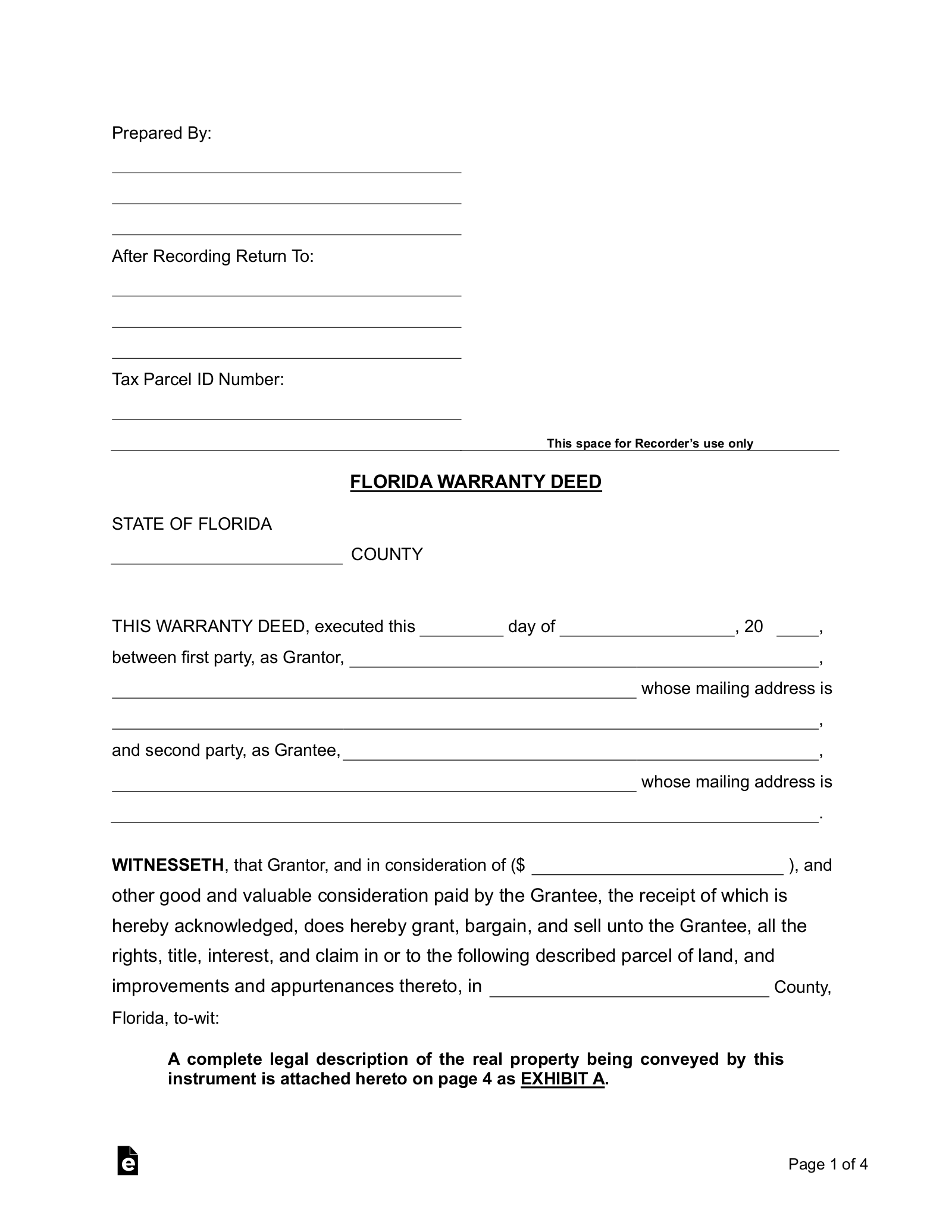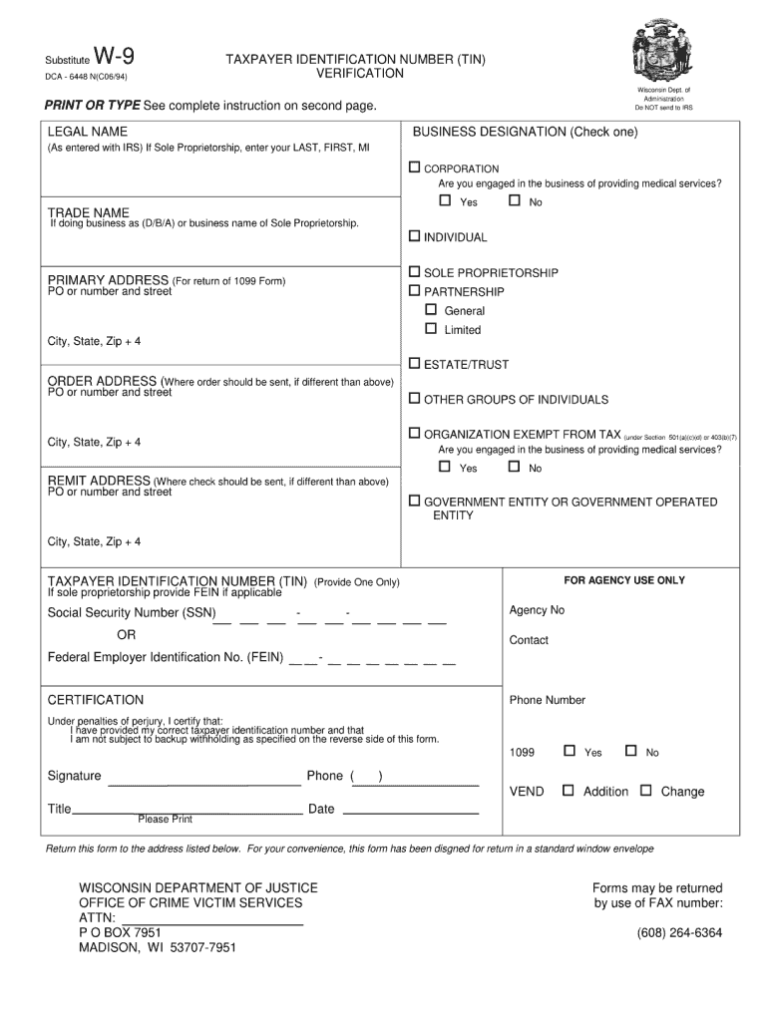Free Florida Deed Form Download: A Comprehensive Guide to Acquiring, Completing, and Submitting Real Estate Deeds
In the realm of real estate transactions, the conveyance of property ownership necessitates the execution of a legal document known as a deed. This document serves as indisputable evidence of the transfer of title from one party to another, ensuring the secure and seamless transition of property rights. While the services of an attorney can be retained for the drafting of such a deed, individuals seeking a cost-effective and convenient alternative can opt to download free Florida deed forms online.
This comprehensive guide will delve into the intricacies of acquiring, completing, and submitting free Florida deed forms, empowering you with the knowledge and confidence to navigate this legal process effectively. By exploring the benefits, resources, and legal considerations associated with these forms, you will gain a thorough understanding of their significance and proper utilization.
Introduction
Free Florida Deed Form Download refers to an official legal document that can be obtained online for free, which enables individuals to transfer ownership of real estate property within the state of Florida, United States. These forms are essential for ensuring that real estate transactions are conducted legally and in accordance with state laws.
Using official legal forms for real estate transactions is crucial for several reasons. First, it ensures that the document is legally binding and recognized by the courts. Second, it helps to avoid errors and omissions that could invalidate the transaction. Third, it provides peace of mind knowing that the transfer of ownership is being handled properly.
There are several different types of deeds that can be used in Florida, each with its own specific purpose. The most common type of deed is the warranty deed, which provides the strongest protection for the buyer. A warranty deed guarantees that the seller has clear title to the property and that there are no liens or encumbrances against it. Other types of deeds include the quitclaim deed, which releases the seller’s interest in the property without providing any guarantees, and the special warranty deed, which guarantees that the seller has clear title to the property only during the time that they owned it.
When choosing a deed form, it is important to consult with an attorney to ensure that the form is appropriate for the specific transaction. An attorney can also help to ensure that the deed is properly executed and recorded with the county clerk’s office.
Benefits of Downloading Free Florida Deed Forms
Alright, let’s get real about the perks of downloading free Florida deed forms. It’s like having your own personal legal wizard at your fingertips, innit? Not only do you save a bundle compared to shelling out for an attorney, but you can also skip the hassle of hunting down the right form. Plus, with these online forms, you can do it all in your PJs, no need to dress to impress.
Cost Savings
Hiring a lawyer to whip up a deed can put a hefty dent in your pocket. But with free Florida deed forms, you can save that cheddar for something more lit, like a banging new pair of kicks or a swanky night out. It’s like finding free money, but way cooler.
Convenience and Accessibility
In this digital age, who needs to traipse down to the courthouse? With online forms, you can download them anytime, anywhere. Whether you’re chilling at home or smashing it at the library, you’ve got access to all the legal goodies you need. No more waiting in line or dealing with grumpy bureaucrats.
Common Deed Types
These free Florida deed forms have got you covered for all your property-related shenanigans. Whether you’re buying your first crib, selling your old pad, or gifting a slice of paradise to your nan, there’s a form for that. From quitclaim deeds to warranty deeds, it’s like having a legal buffet at your disposal.
Where to Find Free Florida Deed Forms
Innit, finding free Florida deed forms is a doddle. There are loads of reputable websites that offer ’em for free. Here’s the lowdown on how to find and download the right form for your needs.
First off, you’ll need to search for “free Florida deed forms” or something like that. You’ll see a bunch of websites pop up, but make sure you’re choosing ones that are legit. Some of the best options include:
- Florida Bar Association: https://www.floridabar.org/public/consumer/real-estate/deed-forms/
- Florida Department of Revenue: https://floridarevenue.com/taxes/taxesinfo/propertytax/Pages/Forms_Brochures.aspx
- Legal Zoom: https://www.legalzoom.com/forms/real-estate/florida
Once you’ve found a website you trust, it’s time to download the form. Most websites will have a “download” button or link. Click on it and save the form to your computer.
Now, you’re ready to print the form and fill it out. Make sure you read the instructions carefully before you start filling it out. If you have any questions, don’t hesitate to contact a lawyer.
How to Fill Out a Florida Deed Form

Filling out a Florida deed form is a straightforward process that can be completed in a few simple steps. By following these steps and providing accurate and complete information, you can ensure that your deed is valid and legally binding.
Step 1: Gather Necessary Information
Before you begin filling out the deed form, you will need to gather the following information:
- Names and addresses of the grantor (seller) and grantee (buyer)
- Legal description of the property
- Purchase price or other consideration
- Any liens or encumbrances on the property
Step 2: Complete the Grantor Information
In the grantor section of the deed, you will need to provide the following information:
- Name and address of the grantor
- Marital status of the grantor
- Signature of the grantor
- Notarization of the grantor’s signature
Step 3: Complete the Grantee Information
In the grantee section of the deed, you will need to provide the following information:
- Name and address of the grantee
- Marital status of the grantee
Step 4: Complete the Property Description
In the property description section of the deed, you will need to provide a legal description of the property. This description should include the following information:
- County where the property is located
- Legal description of the property (e.g., lot number, block number, subdivision name)
- Street address of the property (if applicable)
Step 5: Complete the Consideration Section
In the consideration section of the deed, you will need to state the purchase price or other consideration for the property. This consideration can be in the form of cash, a mortgage, or other property.
Step 6: Complete the Covenants and Restrictions
In the covenants and restrictions section of the deed, you can include any restrictions or limitations on the use of the property. These restrictions can include things like restrictions on the type of building that can be built on the property or restrictions on the use of the property for commercial purposes.
Step 7: Sign and Notarize the Deed
Once you have completed all of the sections of the deed, you will need to sign and notarize the deed. The deed must be signed by both the grantor and the grantee. The signatures must be notarized by a notary public.
Legal Considerations
Executing a deed in Florida comes with certain legal requirements that must be met to ensure its validity and enforceability.
One crucial aspect is the presence of witnesses. Florida law mandates that at least two witnesses, who are not directly involved in the transaction, must be present when the deed is signed. These witnesses must be able to attest to the fact that the grantor (the person transferring ownership) willingly and knowingly signed the document.
Notarization
In addition to witnesses, notarization is also a common practice in Florida real estate transactions. A notary public is an official authorized to witness signatures and verify the identity of the signatories. While notarization is not a legal requirement for deeds in Florida, it adds an extra layer of authenticity and helps prevent fraud.
Recording the Deed
Once the deed is executed and witnessed, it must be recorded with the county clerk’s office in the county where the property is located. Recording the deed serves as public notice of the transfer of ownership and protects the buyer’s interest in the property. Failure to record the deed can leave the buyer vulnerable to claims from third parties who may have an interest in the property.
Additional Resources
Obtaining legal assistance or information on real estate law can be invaluable. There are numerous websites and organizations that offer support and guidance in this area.
Consulting with an attorney is highly recommended for complex real estate transactions, as they possess the expertise to navigate legal complexities, ensuring the protection of your interests and the validity of the transaction.
Links to Legal Assistance
- Florida Bar Association: https://www.floridabar.org/
- Florida Legal Services: https://www.floridalawhelp.org/
Benefits of Consulting an Attorney
- Expert guidance through complex legal matters
- Protection of your legal rights and interests
- Ensuring the validity and enforceability of real estate transactions
Helpful Answers
Can I legally complete a Florida deed form without the assistance of an attorney?
Yes, individuals are permitted to complete Florida deed forms without legal representation. However, it is crucial to exercise due diligence and ensure the accuracy and completeness of the document to maintain its legal validity.
Where can I find reputable websites that offer free Florida deed form downloads?
Numerous reputable websites provide access to free Florida deed forms, including the Florida Bar Association, Florida Department of State, and LegalZoom.
What are the essential elements that must be included in a Florida deed form?
Florida deed forms must contain specific elements to be legally valid, including the names of the grantor and grantee, a legal description of the property, the consideration or purchase price, and the signatures of the parties involved.
Is it necessary to have witnesses present when signing a Florida deed form?
Yes, Florida law requires the presence of at least two witnesses who must sign the deed form in the presence of the grantor.
How do I ensure the proper recording of my completed deed form?
Once the deed form is executed, it must be submitted to the county clerk’s office in the county where the property is located for recording. The clerk will verify the document’s validity and record it in the county’s official land records.


